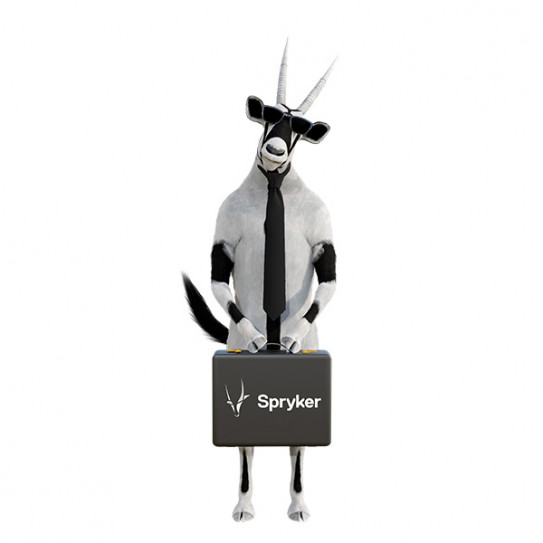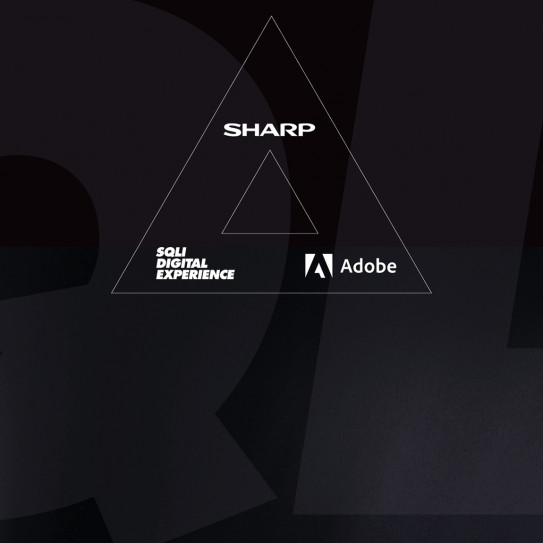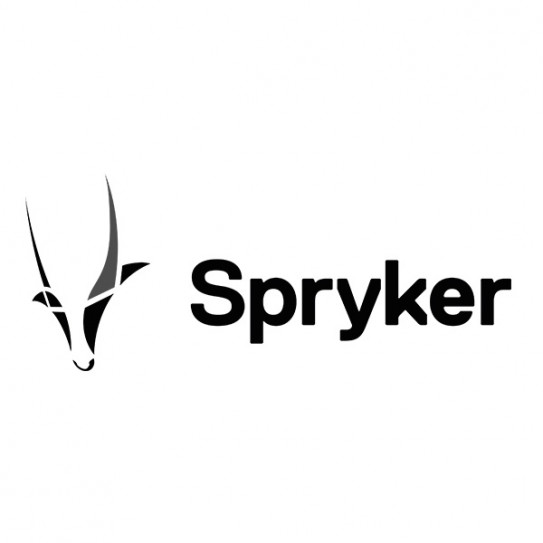
Partner spotlight: Spryker
It’s almost impossible to have a conversation about the future of digital commerce without the subject of composable architecture coming up. It’s the Glastonbury Festival of the industry. The hottest ticket in town that everyone is talking about.
It’s almost impossible to have a conversation about the future of digital commerce without the subject of composable architecture coming up.
It’s the Glastonbury Festival of the industry. The hottest ticket in town that everyone is talking about.
With speed, adaptability and scalability vital in today’s fast-moving, but uncertain, world, composability offers brands the flexibility they are looking for.
Composable architecture allows businesses to build solutions with loosely coupled microservices and applications, that can work separately while communicating through APIs. Developers can simultaneously work on different sections, while businesses can use systems from different suppliers to customise their digital stores more easily.
But if composable architecture is the Glastonbury Festival of the industry, SQLI partner Spryker is fast becoming the headlining act. It’s the up-and-coming rock star challenging the status quo - and redefining digital commerce.
Spryker’s modular, scalable and customisable commerce stack and next generation cloud capabilities are helping it win a string of high-profile clients and partners. In its recent Magic Quadrant for Digital Commerce report, Gartner suggested that “against its competitors, Spryker ranks first for composable commerce and in the upper mid-range for the B2C commerce, B2B commerce and B2C and B2B commerce on the same platform use cases.”
For Spryker CEO Alex Graf, it’s an exciting time to be in the composable market – with the buzz around the industry gathering pace.
Speaking to SQLI, he said: “It's all about momentum. Partners like SQLI are now working closely with vendors like Spryker because there's momentum in the market.
“The trajectory began three or four years ago when we internationalised the brand. It was gradual at first, but our international partners saw the potential of becoming part of the Spryker Herd - as we are calling it - earlier.
“Now, more are joining the Herd and so the momentum is growing. However, the irony is that when everyone has joined, it's too late! Then you’re SAP or Salesforce and from an agency perspective, you are making less of an impact.
“So, the exciting time to join is now. It's not when Spryker becomes a multi-billion-pound company. It's now, because now we have the strongest growth trajectory and are building the biggest momentum.”
How it all started
Boris Lokschin and Alex Graf launched Spryker in 2014, initially working on a progressive marketplace project with customer Siroop. Two years later, the company’s first composable commerce operating system was available.
Fast-forward six years and the business employs more than 600 people, with offices in Berlin and Hamburg and a string of global brands behind it including Toyota, Aldi, Siemens Healthineers and Gartner.
Alex said: “We started Spryker when we saw that many companies in the industry weren’t searching for the next best shop solution anymore to sell their products online.
“It had changed from a market where it was good enough to have an ok-ish order experience, into a market where you really needed to compete in the way you were selling.
“It was a case of companies asking themselves, ‘are we fast enough in our request for a quote process?’ or ‘do we need a more tailored customer journey?’ and so on.
“So, the market has been moving and selling better has become the new priority for our customers. We are helping our customers sell better and bring differentiation to the market that helps them to attract more customers, make more revenue and shorten the time to market.”

What is Spryker and composable commerce about?
For Alex and Spryker, composability is about giving businesses and consumers better and more choice.
He continued: “The trajectory of composable has shifted away from a desktop suite where everything was baked into one big solution. We’ve moved on from needing a solution where everything was shipped within, to a best-of-breed market. If you want to sell better than Walmart, you want a solution where you can adapt faster, publish features, faster. Composability allows you to choose your partners and pick the PIM system, the checkout system, catalogue management system and the payment system, you want. You can connect it all faster and more seamlessly.
“If you want to show off the best dresses at a fashion show, you don't go to H&M and take something off the shelf, put it on and go on the catwalk. You design something yourself.
“Spryker is giving its clients the toolkit to become their own fashion designer and design the best dress – or build the best solution. And then do it again and again.
“That's where we are now, moving away from the best-of-suite, into the best-of-breed world.”
Gartner’s 2022 annual global survey of CIOs and tech execs found composability to be 'an antidote to volatility,’ with 63 per cent of CIOs at organisations with high composability reporting superior business performance compared to its peers or competitors.
If you want to show off the best dresses at a fashion show, you don't go to H&M and take something off the shelf, put it on and go on the catwalk. You design something yourself.
Benefits of Spryker's Composable Commerce technology
Decision makers are clearly seeing the benefits of going composable in these uncertain times. But why should they choose Spryker, over competitors?
“It’s the best composable ecommerce platform for enterprises,” continued Alex.
“We offer faster time to market and more advanced click-and-collect or curb-side pick-up capabilities for control over the customer experience, compared to other platforms and more capabilities when building an international platform instead of running it out country-by-country.
“However, for us, it’s more than just the solution we offer. There are network ecosystem questions that need to be solved and we are confident in saying we have the fastest growing ecosystem that makes it interesting for agencies and technology partners to join. It makes a huge difference to customers because things are happening faster with Spryker.”
With inflation up and many feeling the pinch globally, alongside more than a decade of innovation in retail in some regions, it’s the B2B market rather than the B2C market where Alex sees the bigger opportunities for composable.
He said: “Many brands are looking for a quick solution because they didn’t invest digitally over the last 10 years. For some of these, it’s too late, they really only want to try to rescue their stores – often running on old, outdated business models. They are thinking from a brick-and-mortar perspective.
“However, for many B2B brands their digital journey is only just beginning. For them it’s like where the B2C market was 10 to 15 years ago. It depends on the country and region of course, but it's still Day One in digitisation for many B2B companies.
“The majority of markets worldwide are in the very early stages of e-Commerce adoption. If you look at the MENA region for example, you still have segments with e-Commerce below five per cent, such as fashion, furniture and even consumer electronics. The same in Latin America. The US and Europe are more advanced in B2C, but even in B2B it's very, very early.
“So, I think it's still a very good time from an agency or vendor perspective to be in this market. Because the market will see tremendous macro-economic tailwinds over the next 10 to 20 years.”
What’s the future of composable and digital commerce in general?
“It's going to be a bumpy road for the whole industry in 2023,” Alex said. “There's so much insecurity. The UK is in a difficult place right now which is very different to the rest of Europe which is still figuring what is going to happen.
“But there’s still growth potential in digital commerce. It's the best time to be in the industry now with a good solution. I don't have any doubt about our industry and where it's leading to.
“I'm worried for many B2C companies with a strong brick-and-mortar DNA that didn’t innovate their business model. A lot of high streets, B2C retailers and department stores are suffering as they don’t offer anything unique any more.
“Digital B2C businesses are in the same place B2C brick-and-mortar retailers were 10 or 15 years ago. They need to reinvent. They need to innovate or become irrelevant. Why should people buy an Xbox at a standard consumer electronics online retailer when this same device is cheaper to get on Amazon? The whole business model where you earn your money based on the product margin is dying because of the platform economy.
“This is why there is so much focus on the B2B marketplace right now, because the pressure there is different. The opportunities are more future-proof.”
But for Alex, one of the main things to get across is that many businesses need to quickly change the questions they are asking, in order to survive and thrive.
He added: “Many are still trying to figure out what to sell. They are trying to understand their future as a retail company in comparison to Amazon.
“The question can’t be ‘what do I sell?’ anymore, it has to be ‘how do I sell?’ How can I take more control of my platform? How can I test out our business model in other countries, faster? How can I try new features, faster? How can I stop my team building PowerPoint slides and Excel spreadsheets for business plans? So, how can I act like a real digital company?
“The answers lie with composability - and this is why the momentum is fully behind it, right now.”


